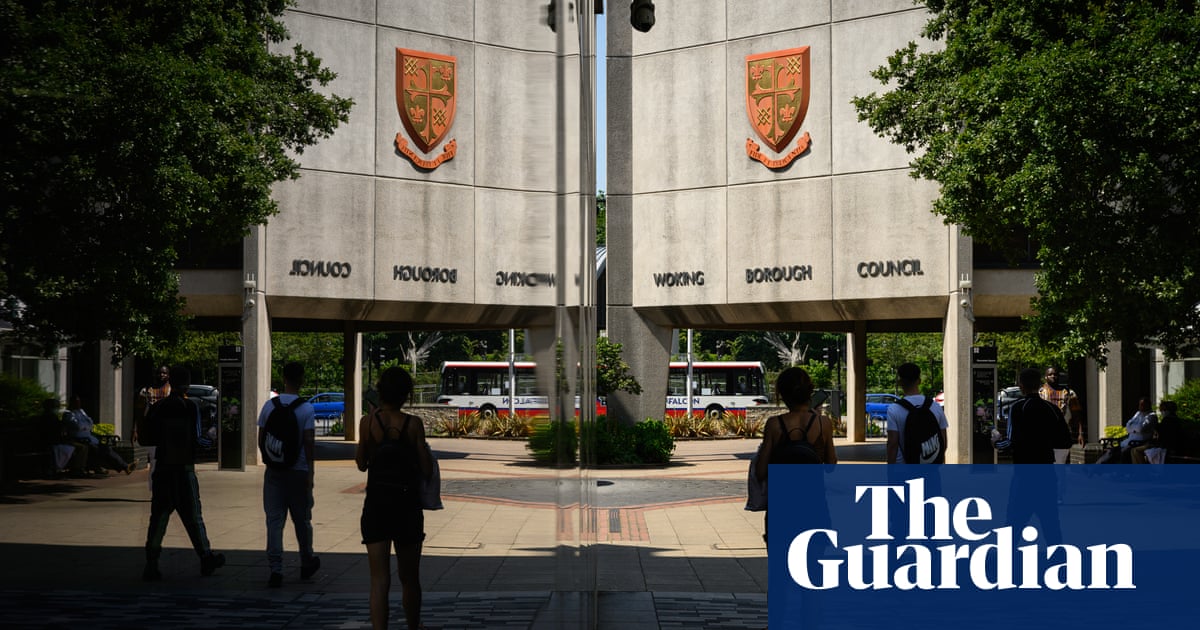
The spiralling cost of social services is eating into the budgets of England’s largest councils to the extent that many will soon be forced to abandon “nice to have” functions such as arts and youth clubs and Sure Start centres.
Council leaders are concerned town halls are at risk of becoming “care authorities” focused primarily on the provision of care packages to an expanding number of at-risk children and frail adults at the expense of other services.
Some top-tier councils are already spending as much as 70-80% of their annual revenue budget on adults and children’s social care – up from about 50% a decade ago – and say costs in these areas are rising and increasingly unsustainable.
Without more government funding, even stripping back mandatory non-care services such as waste collection to legal minimum levels may not be enough to prevent authorities from effective bankruptcy, the County Councils Network (CCN) said.
It estimates English councils face a £6.3bn hole in their finances over the two years, though this could grow as high as £54bn by 2030, depending on the size of future council tax rises and the level of central government funding available.
The CCN said the government – whose autumn statement at the end of this month is expected to offer little financial respite for councils – must increase local authority budgets or face an “unpalatable trade-off” between reducing councils’ statutory duties and insolvency.
A recent survey of the CCN’s 37 member authorities suggested that as many as 16 county or unitary councils were at risk of insolvency by 2026 if ministers failed to address the financial and service demand challenges facing local government, the CCN said.
By law, councils must provide educational services, child and adult social care, waste collection, public health services, planning and housing services, road maintenance and library provision.
However, the precise level of statutory provision is not easily defined – many councils have lawfully closed many of their libraries. Others have introduced or are increasing charges for social care, planning and garden waste collection. Councils have also sold off land, buildings and other assets to try to balance their budgets.
So-called “nice to have” or discretionary services have already faced brutal cuts over the past decade, including Sure Start children’s centres, youth clubs, leisure centres, arts projects, museums and theatres, parks and tourist information centres.
“With the funding gap fuelled by rising costs in adult social care, children’s services and Send [Special Education Needs and Disability] transport, councils will have to divert even more funding to prop up these services, leaving councils providing little more than care services by the end of this parliament,” said Barry Lewis, the CCN vice-chair.
He added: “With many local authorities already close to the legal minimum on the services they deliver, our survey shows it still won’t be enough for some. Ministers would therefore have no choice but to radically rethink the statutory responsibilities placed upon councils to prevent six in 10 declaring bankruptcy by 2028.”
Top-tier councils’ financial challenges are fuelled by record numbers of children taken into care – councils are charged more than £250,000 a year for some specialist placements – and growing numbers of disabled adults and vulnerable older people.
They are also reeling from the rapid increase in Send services, the cost of which has more than doubled to £9bn in the past decade, and rising bills for providing home to school transport for disabled children.
District councils have warned they face similar existential challenges, in their case mainly caused by rising bills for emergency housing used by homeless families. Some districts face £1m overspends on temporary accommodation this year, according to the District Councils Network (DCN).
Hannah Dalton, DCN’s housing spokesperson, said: “The dramatic growth in temporary accommodation use is threatening the financial future of many district councils, leaving many forced to cut other services to balance the books. This simply isn’t sustainable or fair on our local communities.”
Birmingham, Working, Nottingham, Slough, Croydon and Thurrock have all declared effective insolvency in recent years. They were among 19 English councils given special permission earlier this year to use capital funds raised by loans or asset sales to spend on day-to-day services to stave off bankruptcy.
A government spokesperson said: “Despite the inheritance left, we will work with local government to fix the foundations and get them back on their feet by doing the basics right, including providing more stability through multi-year funding settlements, ending competitive bidding for pots of money and reforming the local audit system.
“We will set out more detail at the next spending review and local government finance settlement but stand ready to speak to any council that is experiencing financial difficulties.”












